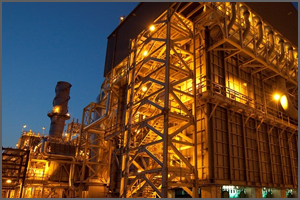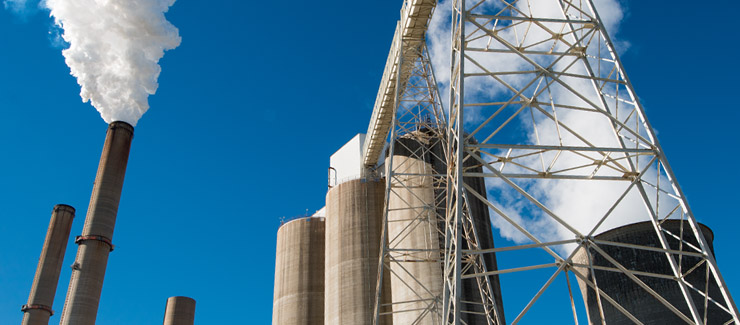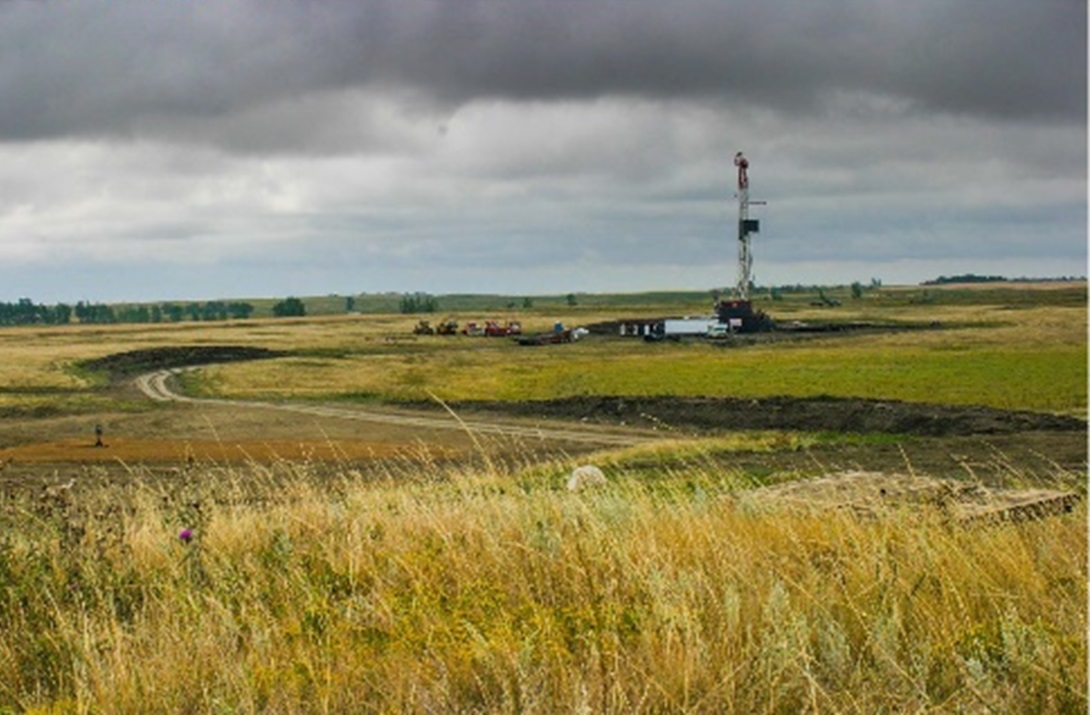Strategic Systems Analysis and Engineering
Advancing American innovation through insightful analysis of complex, multi-scale energy systems.
NETL’s Strategic Systems Analysis and Engineering (SSAE) directorate advances American innovation with astute analysis that helps to identify new energy concepts, provide insight into potential new technology ideas and analyze how energy systems interact.
NETL’s SSAE researchers use multi-criteria, multi-scale decision tools and approaches to support decision-making. This includes process and cost engineering, dynamic optimization and uncertainty quantification, science-based design of experiments for risk reduction, resource and subsurface analysis, market and infrastructure analysis and environmental life cycle analysis (LCA).
SSAE supports strategic planning with comprehensive evaluations of complex energy systems (from the sub-process to the global scale) that assess technical, economic, resource, workforce and market risks across the value chain life cycle. These evaluations provide insights to U.S. Department of Energy (DOE) program leaders and other sponsors and stakeholders to help inform research goals and identify R&D investment options.
Recent Publications
Strategic Systems Analysis and Engineering
Energy Markets Analysis
NETL’s Energy Markets Analysis research evaluates the competitiveness of advanced technologies developed by NETL researchers and others in the future U.S. energy landscape. Macroeconomic models and various pipeline and electric grid infrastructure models provide regional, national and global analysis.
We cross every sector of the energy delivery system, including electricity, coal, natural gas, petroleum and water. We have expertise in assessing trends around the electric grid; pipeline transportation infrastructure for natural gas, petroleum and their products; bulk commodity transportation systems, including rail and commercial waterways; and associated and interdependent systems, including energy storage.

Energy Process Analysis
NETL's Energy Process Analysis research provides complex techno-economic analyses of emerging technologies related to the evolving U.S. energy landscape. Our process and cost engineering expertise focuses on using our nation's abundant fossil energy resources to provide affordable, reliable and secure energy, and industrial feedstocks to grow the U.S. economy while ensuring clean air and clean water. Innovation areas include generating electricity, producing fuels and chemicals and boosting supplies of other valuable feedstocks such as critical minerals and materials (CMM). We provide novel insights about commercial energy markets, infrastructure and emerging technologies, performing sensitivity analyses on key parameters, what-if analyses and goal setting. All work adheres to standards supporting quality, transparency and comparability.

Energy Systems Analysis
NETL's Energy Systems Analysis research examines the scientific, engineering and techno-economic factors involved in exploring, extracting and utilizing subsurface resources such as hydrocarbons, CMM and rare earth elements (REE). Those holistic products inform stakeholders about subsurface energy system performance, cost drivers, research opportunities and economically viable and safe deployment strategies.
We also specialize in environmental life cycle analysis (LCA), a systematic approach to evaluating subsurface energy resources, energy infrastructure and novel energy systems. Our analysis supports DOE research and development goals.

Process Systems Engineering
NETL's Process Systems Engineering research combines expertise in engineering, operations research, statistics and applied mathematics to support the U.S. power industry and accelerate future energy, water and manufacturing systems development. Our researchers also specialize in digital twin development and dynamic modeling to meet the requirements of future energy scenarios.
Our advanced process modeling, simulation and optimization tools — including the Institute for the Design of Advanced Energy Systems (IDAES) process systems engineering computational platform — help maximize learning and reduce the technical risk of scaling up new technologies. They are often distributed via open-source software releases, including CCSI Computational Toolset, IDAES Integrated Platform, WaterTAP and PARETO.

Models and Tools
NETL uses specialized models and tools to help organizations analyze complex data, identify trends and optimize strategies to achieve cost savings and reduce financial risk. This work improves prediction accuracy and applicability to real-world scenarios.
Models and tools include:
- Markets and Grid Infrastructure Interdependence Collaborative (MAGIIC)
- NETL-West Virginia University Econometric Input-Output Model (ECIO)
- PROMOD
- The Integrated MARKAL-EFOM System (TIMES (MARKAL))
- System Cost of Replacement Energy (SCoRE)
Our specialized models and tools can be used for:
- Technology siting
- Total system cost analysis
- Energy database and subscriptions
- Long-term deployment and capacity analysis
NETL has developed unique models and tools to analyze energy processes, helping companies create detailed models of energy systems. These models and tools provide data-driven insights for decision-making, enabling companies to identify ways to manage systems efficiently and reduce costs.
NETL models for energy process analysis include:
- Aspen Plus Process Models
- Thermoflow
- CHEMCAD
- Cooling Technology Models for Indirect sCO2 Cycles
- Power Systems Financial Model (PSFM)
- Solid Oxide Cell Manufacturing Cost Tool
- Carbon Capture Retrofit Databases (CCRDs) for power plants
NETL analyzes energy systems using models and tools that evaluate various aspects of energy production, transportation and storage to support informed decision-making. These tools help organizations analyze complex energy systems, identify areas for improvement, optimize energy efficiency and manage resources, ultimately supporting an abundant and resilient U.S. energy future.
Models and tools supporting life cycle analysis (LCA) include:
- NETL CO2U LCA Guidance Toolkit for Carbon Utilization
- Carbon Dioxide Enhanced Oil Recovery Life Cycle Model (CELiC)
- NETL Natural Gas Lifecycle Model (NGLCM)
- Electricity Life Cycle Inventory (ElectricityLCI)
- CBTL Jet Fuel Model
- Grid Mix Explorer
- NETL Coal Baseline Lifecycle Model (CBLM)
Models and tools supporting subsurface research include:
- FECM/NETL CO2 Prophet Model (CO2_Prophet)
- FECM/NETL CO2 Saline Storage Cost Model (CO2_S_COM)
- FECM/NETL CO2 Saline Storage Cost Model Offshore (CO2_S_COM_Offshore)
- Geoanalytical Economic Evaluation of Saline Storage (GEESS)
- FECM/NETL Onshore CO2 EOR Evaluation System (CO2_E_COM)
- FECM/NETL CO2 Transport Cost Model (CO2_T_COM)
- FECM/NETL Hydrogen Pipeline Cost Model (H2_P_COM)
- FECM/NETL Natural Gas with Hydrogen Pipeline Cost Model (NG-H2_P_COM)
- FECM/NETL CO2 Capture, Transport and Storage Cost Screening Tool (CTS)
- FECM/NETL CO2 Capture, Transport, Utilization and Storage – National Energy Modeling System (CTUS-NEMS)
- FECM/NETL Unconventional Shale Well Economic Model (UShWEM)
NETL’s process systems engineering experts develop models and tools to support innovation in rare earth element (REE) and critical minerals and materials (CMM) recovery, energy and manufacturing systems development, water desalination and produced water management.
These models and tools include:
- Institute for the Design of Advanced Energy Systems (IDAES)
- Design Integration and Synthesis Platform to Advance Tightly Coupled Hybrid Energy Systems (DISPATCHES)
- Process Optimization and Modeling for Minerals Sustainability (PrOMMiS)
- CCSI Computational Toolset
- Water treatment Technoeconomic Assessment Platform (WaterTAP)
- Produced Water Application for Beneficial Reuse Environmental Impact and Treatment Optimization (PARETO)
- PRIMO/PRIMA open-source, customizable decision-support and project optimizer tool








